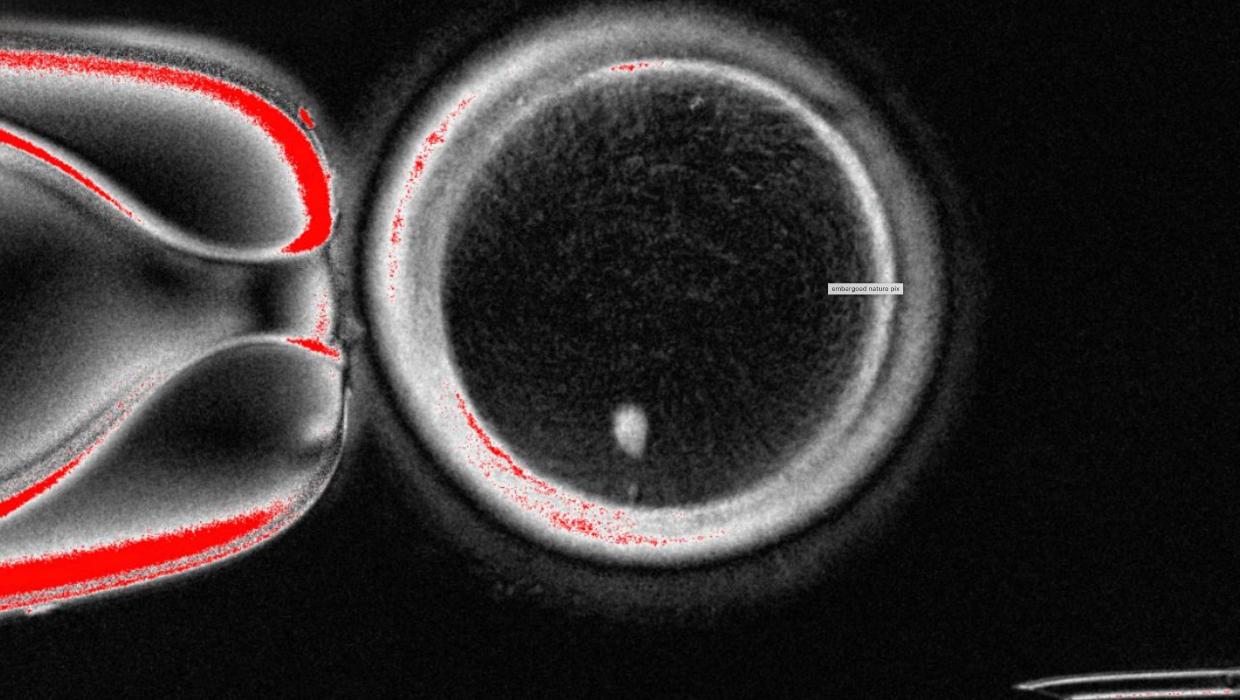Science
US Scientists Successfully Create Fertilizable Eggs from Skin Cells

Scientists in the United States have achieved a significant breakthrough by transforming human skin cells into fertilizable eggs. This pioneering research marks a crucial step toward the development of lab-grown eggs and sperm, with the potential to assist individuals facing challenges in conception.
In a study published in October 2023, researchers detailed their innovative technique, which involves reprogramming skin cells to develop into oocyte-like cells. These cells can then undergo fertilization, raising the prospect of creating viable gametes from somatic cells. The implications of this advancement could be profound, offering new avenues for fertility treatments and potentially addressing infertility issues for numerous couples.
A New Frontier in Reproductive Technology
The research team, led by a group of scientists at a prominent US university, has been exploring the possibilities of generating gametes from non-reproductive cells. This approach could provide a sustainable solution in the field of reproductive medicine. Currently, fertility treatments typically rely on harvested eggs and sperm, which may not be available to all individuals, particularly those undergoing medical treatments that affect their fertility.
By utilizing skin cells, which are more readily accessible, researchers hope to create a more inclusive pathway for individuals seeking to conceive. This method could also reduce the reliance on donor eggs and sperm, thus allowing for personalized reproductive options tailored to individual genetic backgrounds.
The study results demonstrate that the reprogrammed skin cells possess the necessary characteristics to develop into functional eggs. When these oocyte-like cells were fertilized in laboratory settings, they showed the potential to develop into early-stage embryos, indicating a significant advancement in reproductive technology.
Future Implications for Fertility Treatments
The implications of this research extend beyond theoretical discussions. As the technology continues to evolve, it could lead to new fertility treatments that may one day become standard practice. The ability to create eggs and sperm in the lab could provide solutions for individuals with genetic disorders, same-sex couples, or those facing age-related fertility decline.
While this research is still in its early stages, the potential for future applications is substantial. Scientists are optimistic that advancements in this area could lead to improved success rates in assisted reproductive technologies, ultimately helping more people achieve their dream of parenthood.
As the scientific community continues to explore the possibilities of lab-grown gametes, further studies will be essential to address any ethical concerns and ensure the safety and efficacy of these techniques. This groundbreaking research not only opens doors to innovative reproductive solutions but also challenges existing notions of fertility and conception in contemporary society.
-

 World1 week ago
World1 week agoPrivate Funeral Held for Dean Field and His Three Children
-

 Top Stories2 weeks ago
Top Stories2 weeks agoFuneral Planned for Field Siblings After Tragic House Fire
-

 Sports3 months ago
Sports3 months agoNetball New Zealand Stands Down Dame Noeline Taurua for Series
-

 Entertainment3 months ago
Entertainment3 months agoTributes Pour In for Lachlan Rofe, Reality Star, Dead at 47
-

 Entertainment2 months ago
Entertainment2 months agoNew ‘Maverick’ Chaser Joins Beat the Chasers Season Finale
-

 Sports3 months ago
Sports3 months agoSilver Ferns Legend Laura Langman Criticizes Team’s Attitude
-

 Sports4 weeks ago
Sports4 weeks agoEli Katoa Rushed to Hospital After Sideline Incident During Match
-

 Politics2 months ago
Politics2 months agoNetball NZ Calls for Respect Amid Dame Taurua’s Standoff
-

 World2 weeks ago
World2 weeks agoInvestigation Underway in Tragic Sanson House Fire Involving Family
-

 Top Stories2 weeks ago
Top Stories2 weeks agoShock and Grief Follow Tragic Family Deaths in New Zealand
-

 Entertainment3 months ago
Entertainment3 months agoKhloe Kardashian Embraces Innovative Stem Cell Therapy in Mexico
-

 World4 months ago
World4 months agoPolice Arrest Multiple Individuals During Funeral for Zain Taikato-Fox




















